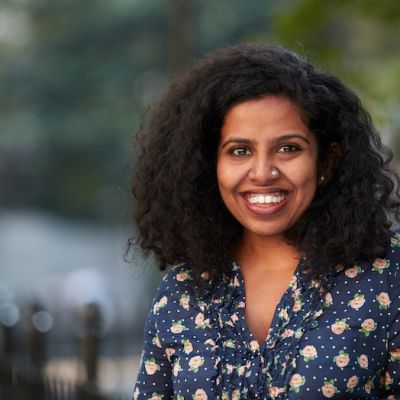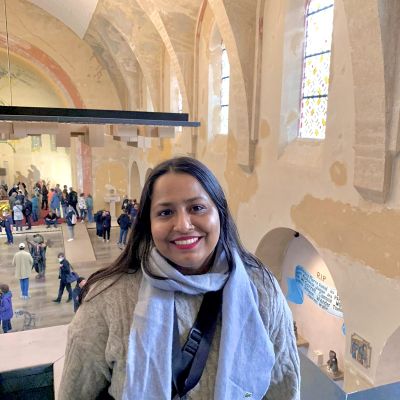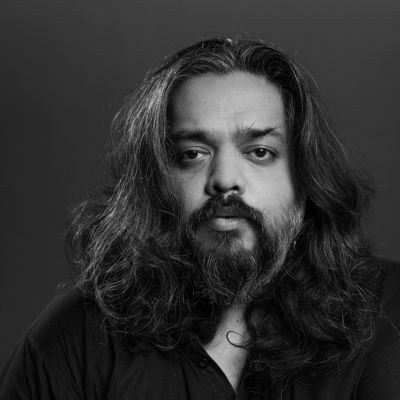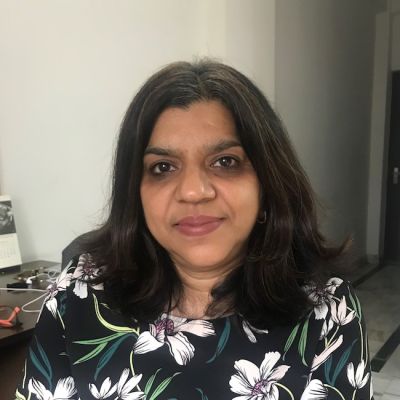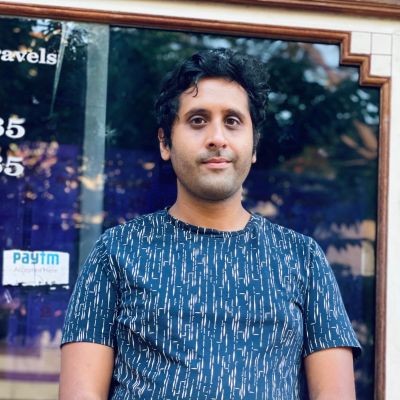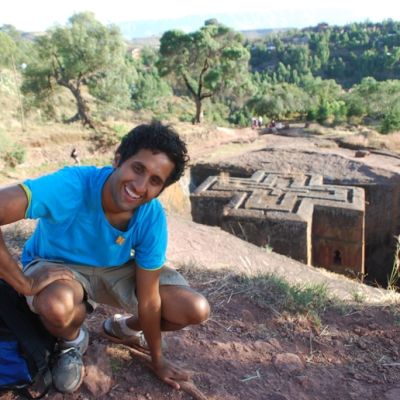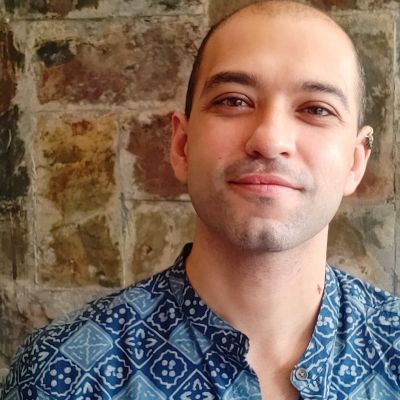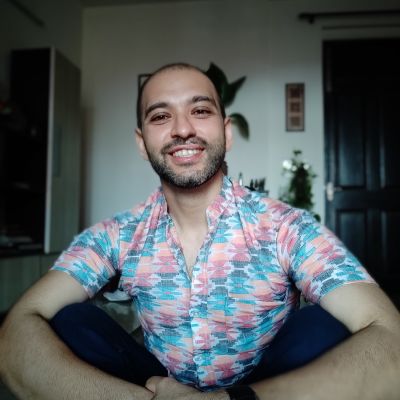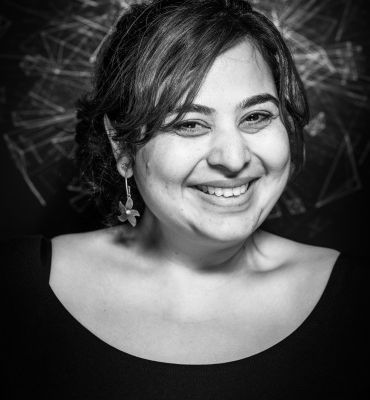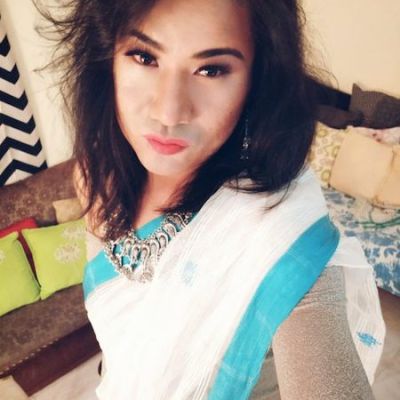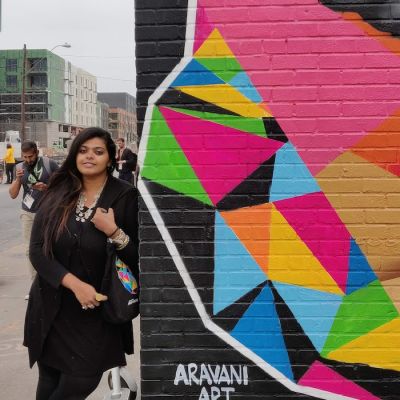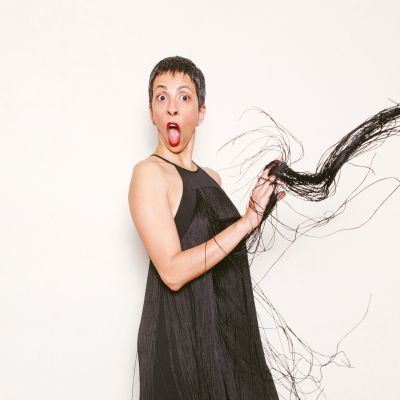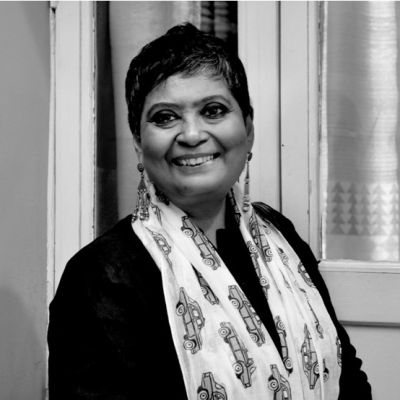Shikha Aleya
Jasmine George is a TEDx speaker, lawyer, and a sexual and reproductive health advocate from India. She is the founder of Hidden Pockets and currently curates conversations around sexuality and other fields. She is passionate about using alternative means in law and technology to explore sexuality
Our bodies are the vessels through which we feel, emote, work or navigate our societies and the world at large. Our bodies are the real, live archive of everything we have experienced and they have borne the consequences of our social conditioning and decisions.
Clothes for me are our first line of defence. They are also our first act of providing relief.
Dr. Kalpana Viswanath, researcher, and urban safety and gender rights activist, shares her thoughts on issues of Public Safety and Sexuality with In Plainspeak. Co-founder and CEO of SafetiPin, a social enterprise that uses data and technology to build safer, more inclusive and smart cities, Kalpana has led large gender rights projects globally.
So I am realising now that for me the space of borderlessness applies to everything. It applies to the physical and topographical border as it does to the borders we create between gender and their expressions. I think I would like to argue for a truly borderless understanding of the world.
Kiran Bhat is an author and polyglot who speaks 12 languages, and has written in English, Kannada, Spanish, Portuguese, and Mandarin. His recently published book, We Of the Forsaken World, has been described as “the tales of not just sixteen strangers, but many different lives, who live on this planet, at every second, everywhere”.
As we grow older, moral codes, conventions of appropriateness and shame, and the utilitarian and income-focused education we get make us lose that stability. The idea of play to me is about bringing back that ability and comfort into the lives of people so that they can actually play.
Manak Matiyani, feminist and queer activist, experienced in facilitating youth leadership for social change, is the Executive Director of the…
What we lack are digital spaces and infrastructures that are informed by the needs of their end users, that prioritise safety, comfort, joy and care.
Pavel Sagolsem, self–described, is a storyteller, vagabond at heart and queer feminist by practice. Pavel is a founding partner of…
We advocate the idea of reclaiming spaces in society by creating large wall-mural projects to raise awareness and to create a voice for the community. We are now finding more innovative ways to engage the community to come out in public spaces, also using the Internet and social media, to feel confident, safe and a sense of belonging.
I think we are still in a trap of a heteronormative, youth biased, light skin biased, sizeist, ableist culture and until we consciously snap out of it we are throwing a cloak over a human being’s ability to really find what their sexuality even looks like.
Self-care is influenced by the environment we inhabit, the way we relate to others, the way we negotiate with other living beings or structures. Self-care is also interlinked with other types of care – whether that is in community resources, psychosocial support, engagement with medical and health care institutions, and of course in collective agency and solidarity.
Self-care is influenced by the environment we inhabit, the way we relate to others, the way we negotiate with other living beings or structures. Self-care is also interlinked with other types of care – whether that is in community resources, psychosocial support, engagement with medical and health care institutions, and of course in collective agency and solidarity.
See, whenever people speak about sexuality, they speak of violence; that seems to be the only recognised form of sexuality in the lives of people with mental health conditions. But there are so many happy, sexy, lovely, delicious stories in there.

